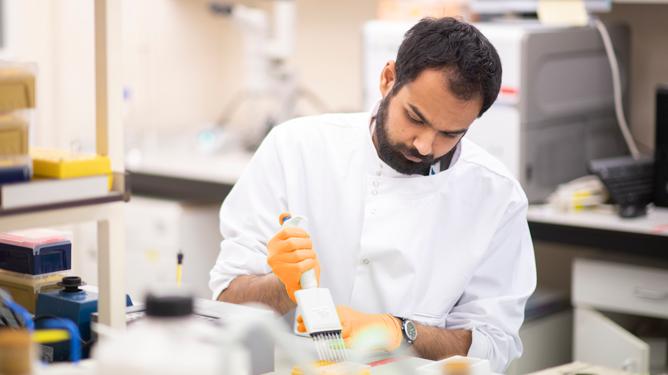Developing an MRI technique for monitoring spinal muscular atrophy
Professor Andrew Blamire and his team will test whether a non-invasive magnetic resonance imaging (…
Investigating the effect of Duchenne muscular dystrophy on the brain
Professor Volker Straub and his team at Newcastle University are aiming to understand how a lack of…
Studying bone health in boys with Duchenne muscular dystrophy- extension study
Dr Anne-Marie Childs and Dr Talat Mushtaq will be studying bone health and the risk of fractures in…
Assessing muscle fibrosis by MRI
In this study Professor Straub and his team are investigating how to improve an imaging technique,…
Developing tools to identify effective treatments for congenital and adult myotonic dystrophy
In this project Professor Brook and his team at the University of Nottingham are developing two…
Development of molecular patches for the treatment of facioscapulohumeral muscular dystrophy
Dr Linda Popplewell at Royal Holloway, University of London, is developing molecular patches that…
Understanding the causes of Emery-Dreifuss muscular dystrophy
Professor Eric Schirmer and his team at the University of Edinburgh aim to identify important genes…

